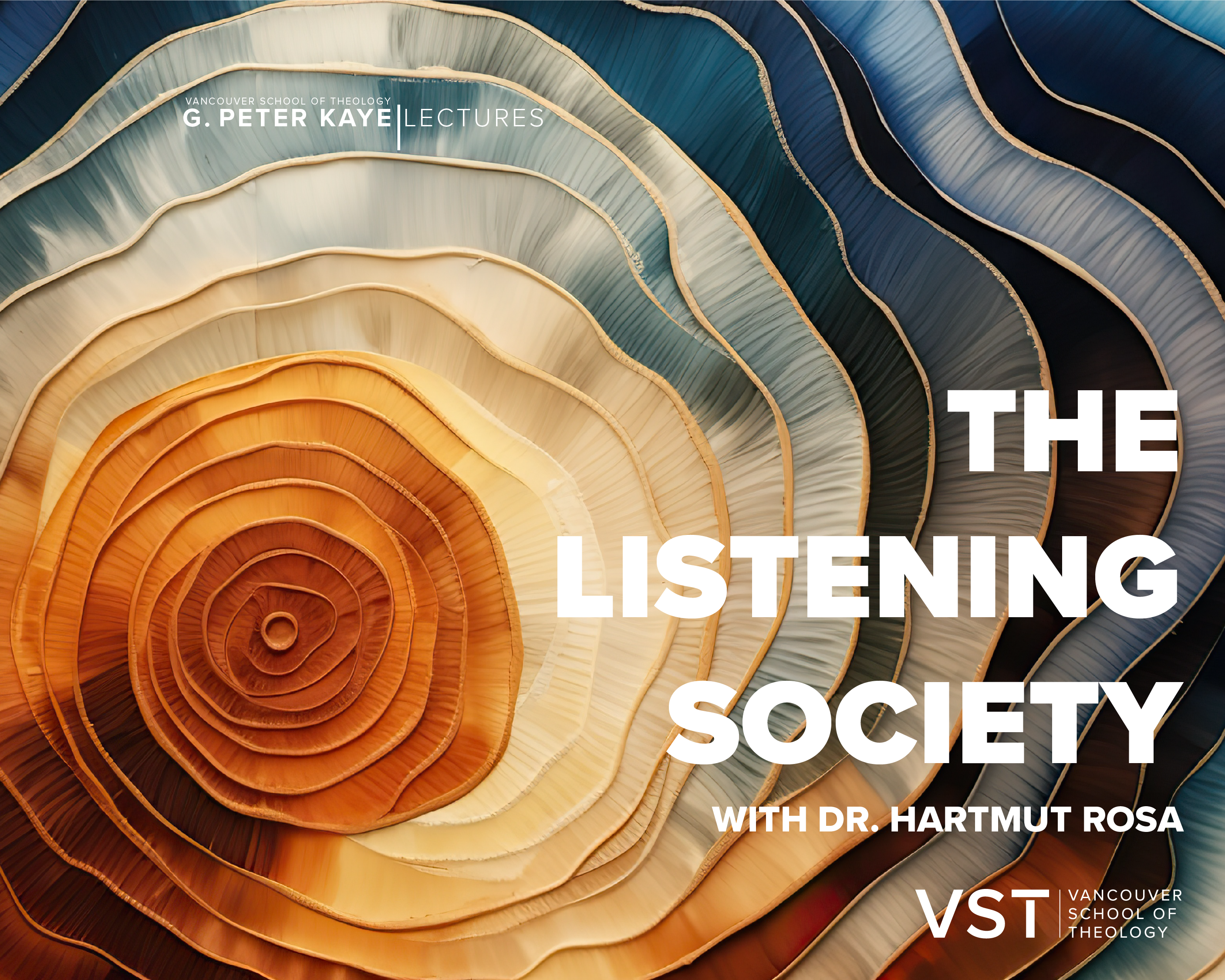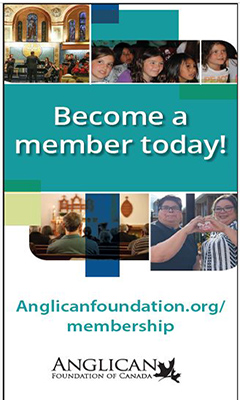
On March 1 and 2, renowned sociologist and political scientist Hartmut Rosa will keynote the G. Peter Kaye Lecture hosted by the Vancouver School of Theology. On March 1, Prof. Rosa will give a public lecture in person and online titled “‘Give us a hearing heart’. The Listening Society and Its Enemies.” On March 2, he will lead an in-person workshop titled “Democracy Needs Religion: On a Peculiar but Resonant Relationship.” The overarching title of the lecture and workshop is “The Listening Society: Religion, Music and Democracy in Resonance.”
Registration is free for the March 1 public lecture and tickets are available for in-person and online attendance. The March 2 workshop will only be offered in person and tickets cost $10 (to cover lunch). Register on the Vancouver School of Theology website.
The listening society
The predominant modern way of being and acting in the world can be termed a mode of deafness and muteness — and of aggression. It is based on a mode of dynamic stabilization, which structurally requires incessant growth, acceleration and innovation to reproduce the institutional status quo. In this way, modern sensibilities are geared towards control and availability — with the obvious problems of political, ecological and psychological disaster.
Against this, the workshop will seek to develop a different mode of being in the world, which can be called a resonant mode. Resonance takes its cue from music — its core elements are listening and responding. Resonance does not start with something we do, but with something we perceive, or allow to happen. Here, responsibility is literally turned into respons-a-bility. It implies a medio-passive (and medio-active) way of relating to the world. Such forms of medio-passivity and respons-a-bility are, of course, not just developed in theological theories but also enacted and embodied in religious rituals and practices.
Nevertheless, there can be no doubt that religious authorities and dogmas can easily play out the other way and become resonance killers of the worst sort. Thus, the challenge is to work out and define the dividing lines in this Janus face of religion.
About Hartmut Rosa
Harmut Rosa is the professor of general and theoretical sociology at Freidrich-Schiller University in Jena and the director of the Max Weber Centre for Advanced Cultural and Social Studies at Erfurt University.
Prof. Rosa’s research interests include resonance theory, normative and empirical foundations of critical social theory, political and philosophical communitarianism and civil society, and temporal sociology of social acceleration. His books have been translated into 15 languages and he has won a plethora of awards for his work, including the Tractatus Award for Philosophical Essays. His most recent book, Late Modernity in Crisis: Why We Need a Theory of Society, is a co-publication with Andreas Reckwitz.
About the G. Peter Kaye Lecture series
The G. Peter Kaye Lecture series was established in 1987 by the Vancouver Foundation in honour of its well-respected former board chairperson Gilbert Peter Kaye. Peter Kaye led the Vancouver Foundation as its first full-time executive director from 1959 to 1977, and following his retirement he was appointed chairman of the board of directors. During his tenure, the Vancouver Foundation became the largest charitable fund in Canada. Peter Kaye also served as VST’s chancellor and chair of the board of governors until 1984.
For the past 37 years the G. Peter Kaye Lecture series has brought to campus “scholars of international reputation chosen for their ability to make a serious intellectual contribution to theological enquiry in a way that nourishes the spiritual life of the church and the wider community.”


